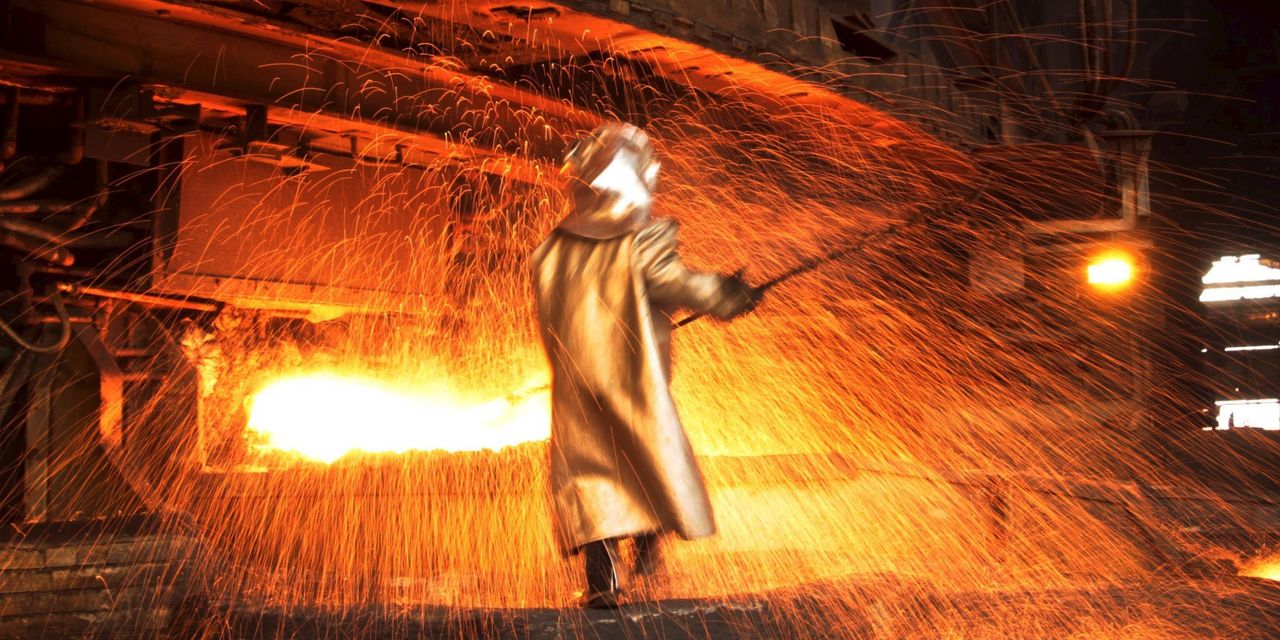

London’s nickel market will stay closed at least until next week, giving the London Metal Exchange more time to resolve a crisis caused by a huge loss-making trade originating in China.
The LME paused trading in nickel Tuesday, the first time it had suspended a market since 1985, and canceled trades executed before the suspension. The exchange late Thursday extended the freeze through the end of the week.
“The LME is doing everything it can to reopen the market as safely and swiftly as possible,” it said in a statement.
The nickel market, like much of the commodity world, has been upended by the war in Ukraine. Russia is a major supplier of nickel, which was already in short supply due to demand for electric-vehicle batteries and other industrial uses, such as stainless steel.
The nickel-trading freeze is one of the highest-profile examples of how the war, and the punishing sanctions imposed by the West, have reverberated through financial markets.
The LME closed trading in nickel after a huge run-up in prices inflicted severe financial pressure on producers that had sold nickel forwards on the LME as a hedge. The biggest loser was Tsingshan Holding Group, the world’s largest nickel producer, which had built up the biggest short position in the metal.
At Monday’s prices, the company was sitting on a paper loss of $8 billion, The Wall Street Journal reported.
Tsingshan couldn’t be reached for comment. It had told Chinese state media Wednesday that it had secured enough metal to settle all its loss-making positions.
Nickel trading took place in the Shanghai market Thursday, with contracts falling the maximum 17% for the second day in a row, indicating that pressure on the market was ebbing.
One question for the market before it reopens: What will be the price of nickel when it does? Most traders think the supply and demand of nickel don’t justify Tuesday’s record high of over $100,000 a metric ton. But some say the market moved in such a wide range before the suspension that it is hard to know where it will open.
“In an environment where we’re just exiting the pandemic, there’s a shortage of material and the Russians just invaded Ukraine, there were literally no offers in the market,” said
Guy Wolf,
head of market analytics at Marex, a member of the LME’s storied open-outcry ring. “Forced buyers, no sellers: Prices can go anywhere.”
There have been winners from the jump in nickel prices. Among them: Canada Nickel Co., which nearly doubled its public offering to 45 million Canadian dollars, or $34.9 million. The exploration company said on Wednesday it was raising more money than previously planned due to significant investor demand for the metal.
Brokers are taking steps to protect themselves from extreme volatility in metal markets induced by the war and the nickel-market pause. Some are requesting margin payments from clients several times each day, instead of once daily, and raising margin requirements for metals beyond nickel.
One reason why the LME froze the market and wound back prices on Tuesday was that it feared several brokers holding short positions for Tsingshan couldn’t make margin payments on its behalf, and would default.
Several high-speed trading firms, however, said the cancellation of trades made the LME a less attractive place to trade. They said companies would be less likely to trade in volatile markets if there is a chance their transactions could be busted, which in turn could spur more volatility.
“The number-one rule is never, ever cancel trades,” said
Don Wilson,
chief executive of Chicago-based trading firm DRW, which trades on the LME and had a position in nickel canceled. “Every other exchange in the universe gets that.”
“This is a big black eye just to the credibility of markets in London in general,” Mr. Wilson added.
The LME said it canceled the trades in part because it “had serious concerns about the ability of market participants to meet their resulting margin calls, raising the significant risk of multiple defaults.”
Brokers in the London market said the exchange was still figuring out the details on a core part of its plan: to get companies that own large amounts of nickel to pair off their positions with those that have sold the metal in heavy volumes. The exchange has said in a statement that it might do so at 10% above Monday’s closing price.
The idea is that netting off trades would mean Tsingshan and other companies won’t have big short positions to cover when the market reopens, which could lead to another short squeeze.
The LME said, however, that “the initial responses indicated limited potential uptake, particularly from those with short positions, and considerable differences in view on the appropriate price.”
—Adriano Marchese contributed to this article.
Write to Joe Wallace at Joe.Wallace@wsj.com
Copyright ©2022 Dow Jones & Company, Inc. All Rights Reserved. 87990cbe856818d5eddac44c7b1cdeb8
24World Media does not take any responsibility of the information you see on this page. The content this page contains is from independent third-party content provider. If you have any concerns regarding the content, please free to write us here: contact@24worldmedia.com

Common Mistakes When Using Athletic Field Tarps

High-Performance Diesel Truck Upgrades You Should Consider

Warehouse Optimization Tips To Improve Performance

Fire Hazards in Daily Life: The Most Common Ignition Sources

Yellowstone’s Wolves: A Debate Over Their Role in the Park’s Ecosystem

Earth Day 2024: A Look at 3 Places Adapting Quickly to Fight Climate Change

Millions of Girls in Africa Will Miss HPV Shots After Merck Production Problem

This Lava Tube in Saudi Arabia Has Been a Human Refuge for 7,000 Years

Four Wild Ways to Save the Koala (That Just Might Work)

National Academy Asks Court to Strip Sackler Name From Endowment

Ways Industrial Copper Helps Energy Production

The Ins and Out of Industrial Conveyor Belts